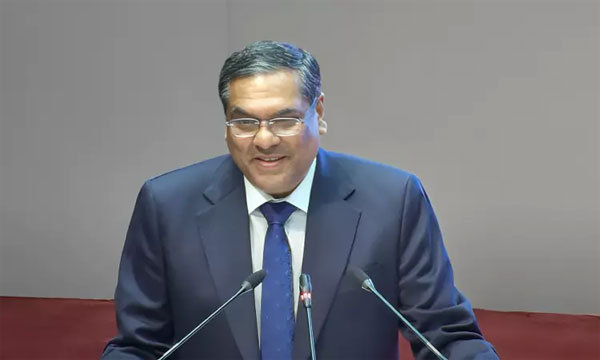Daijiworld Media Network - New Delhi
New Delhi, Aug 19: Former Chief Justice of India, Justice Sanjiv Khanna, has stated that the One Nation, One Election (ONOE) proposal does not violate the Constitution or its basic structure. Sharing his views during a three-hour session with the Joint Parliamentary Committee (JPC) on ONOE, Justice Khanna's key takeaway, according to committee chairperson P.P. Chaudhary, is that the plan is legally viable—though not without caveats.
The 39-member JPC is currently examining the Constitution (129th Amendment) Bill, 2024, and the Union Territories Laws (Amendment) Bill, 2024. These aim to enable synchronized elections for the Lok Sabha and State Assemblies.
Addressing concerns about logistical feasibility, Chaudhary pointed out that simultaneous elections were held from 1951 to 1967. “If we managed it then, we are far better equipped today,” he said, citing technological advancements and enhanced capabilities of the Election Commission. Even if resources fall short, he added, there would be ample time to scale up.

Sources revealed that Justice Khanna, while reviewing the bill’s constitutional aspects, found no direct conflict with the doctrine of basic structure—which restricts Parliament from altering core principles of the Constitution. However, he flagged a need for caution regarding the bill's provision allowing the Election Commission to postpone state elections under Clause 82A(5). He supported vesting such authority in the ECI but insisted on including safeguards to prevent potential misuse.
Justice Khanna also expressed skepticism about the bill's stated goal of reducing election frequency, warning that premature dissolutions of state assemblies could still disrupt the synchronisation of electoral cycles. Nonetheless, he acknowledged the growing political stability in India, noting that mid-term elections have become increasingly rare in recent decades.
The ONOE concept, while controversial today, was standard practice between 1951 and 1967. The system unraveled after the premature collapse of several state governments in the late 1960s. The ongoing JPC discussions aim to determine if this model can now be revived, adjusted for current political and legal realities.
Justice Khanna's nuanced endorsement lends legal weight to the initiative, though the final word may rest with the political consensus and practical safeguards ahead.